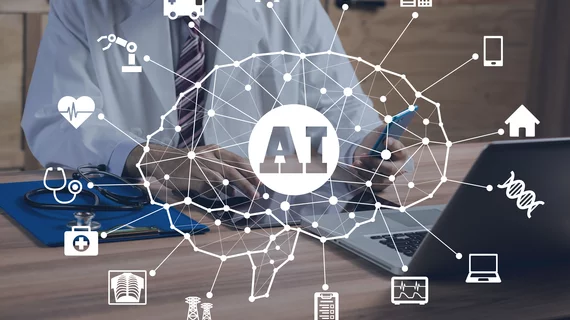AI, imaging help clinicians predict cardiac death in heart failure patients
Researchers in Japan have used the combination of AI algorithms and medical imaging to predict when patients may be at an increased risk of arrhythmic events or even heart failure death. The findings, published in the Journal of Nuclear Cardiology, could potentially save lives by helping at-risk patients receive the care they need as soon as possible.
The study’s authors developed their AI model using two-year outcomes associated with more than 500 chronic heart failure patients. All patients underwent 123I-MIBG imaging, which has been found to “predict cardiac mortality risk due to sudden cardiac or pump failure death” in previous studies.
“We used AI to show that numerous variables work in synergy to better predict chronic heart failure outcomes,” lead author Kenichi Nakajima, MD, Kanazawa University in Japan, said in a statement. “Neither variable, in and of itself, is quite up to the task.”
Overall, heart failure death was associated with age, “very low” MIBG activity, more severe New York Heart Association classifications and various comorbidities. Arrhythmias were associated with younger patients with “moderately low” MIBG activity and “less serious heart failure.”
The authors emphasized that their results still had to be confirmed in larger studies, but the findings do show promising potential for chronic heart failure patients everywhere.
“Our findings revealed differences in the probabilities of these two modes of cardiac death as well as in the pathophysiology of lethal cardiac events in chronic heart failure,” Nakajima et al. wrote. “Therefore, this information should contribute to more precise selection of prophylactic strategies tailored to the risk status of individual patients.”
The full Journal of Nuclear Cardiology study is available here.

